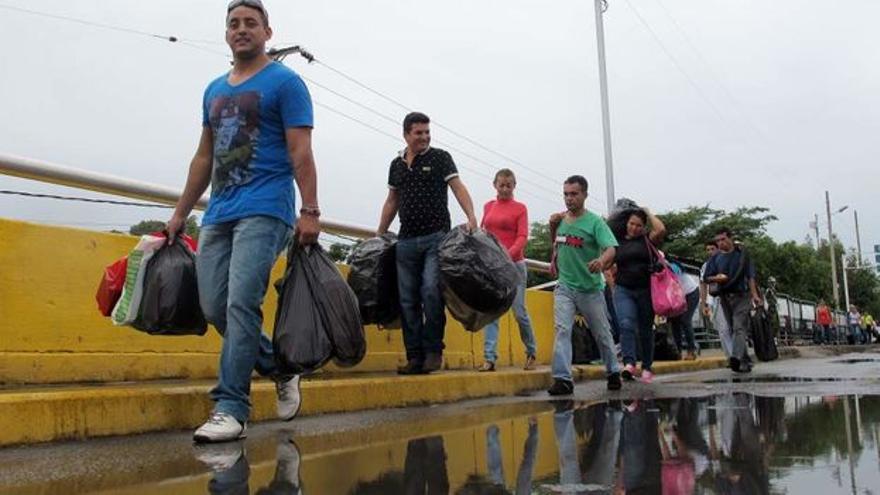
![]() 14ymedio, Havana, July 17, 2019 — Requests for asylum in the United States have become complicated for thousands of applicants, a large many of them Central Americans and Cubans, with the entry into force this Tuesday of the new law to put a check on immigration.
14ymedio, Havana, July 17, 2019 — Requests for asylum in the United States have become complicated for thousands of applicants, a large many of them Central Americans and Cubans, with the entry into force this Tuesday of the new law to put a check on immigration.
The order, published in the Federal Registry last Monday, grants the right to request political asylum at the southern border of the country only to those migrants, of any nationality, who have had their refuge requests rejected in a third country.
“An alien who enters or attempts to enter the United States across the southern border after failing to apply for protection in a third country” other than his country of origin, nationality, or last legal residence, is ineligible for asylum, says the new regulation.
The Departments of Justice and Homeland Security affirmed in a statement that the new order intends to “improve the integrity of the process” by imposing more restrictions and limits of eligibility on the foreigners seeking asylum in the US.
This measure affects a good number of the Cubans who emigrate to the United States by leaving other countries that they use as a platform because they have more lax visa policies, as in the case of Guyana, Panama, and Nicaragua.
In recent years, especially since the end of the wet foot/dry foot policy in January 2017, Cubans have opted for these routes and, additionally, for remaining temporarily in countries like Chile, Uruguay, and Brazil, with the final objective of being accepted by the United States. In these cases the asylum route will remain closed, if the courts do not annul the new law.
The American Civil Liberties Union (ACLU) has stated that it will take legal measures. “The Trump administration is trying to unilaterally reverse our country’s legal and moral commitment to protect people who are fleeing danger. This new rule is patently unlawful. We will sue swiftly,” it wrote on its official Twitter account.
In the event that the lawsuits succeed, a judge could temporarily or permanently suspend the law, which has also been condemned by organizations like the UN Agency for Refugees (UNHCR), and politicians like the Democratic candidate Julián Castro, who wrote on Twitter: “[Trump] wants to replace the torch in the hand of the Statue of Liberty with a middle finger. He must be defeated.”
The acting Secretary of Homeland Security, Kevin K. McAleenan, said that the funds meant to control immigration are not sufficient if the laws aren’t changed. “Until Congress can act, this interim rule will help reduce a major ’pull’ factor driving irregular migration to the United States,” he said.
The new law also provides for certain exceptions. Those who have requested asylum in a third country and been denied can request it in the US, as can those who can prove they have been victims “of a grave form of human trafficking.” Also included in exceptions are those who transited through countries that have not ratified the international protocols on political asylum, like the 1951 Convention Relating to the Status of Refugees, the 1967 Protocol, or the Convention against Torture.
Washington has attempted to make Mexico become the “secure third country” along with the only other country that is now: Canada. However, and although negotiations continue, Mexico’s Foreign Secretary Marcelo Ebrard has expressly rejected it in the last few hours.
“A secure third country means that Mexico would process, in Mexican territory, the asylum procedure for entering the United States. That is not going to occur with this law,” said the Mexican Foreign Secretary at a press conference in Mexico City.
The Foreign Secretary criticized that “what this law means is a limitation on the right to asylum with which Mexico does not agree,” but he rejected that Central American migrants be able to undergo the process in Mexican territory as occurs in Canada.
According to official figures from the US, between October 2017 and September 2018, 13,168 asylum protections were granted out of more than 162,000 petitions made.
Translated by: Sheilagh Herrera
____________________
The 14ymedio team is committed to serious journalism that reflects the reality of deep Cuba. Thank you for joining us on this long road. We invite you to continue supporting us, but this time by becoming a member of 14ymedio. Together we can continue to transform journalism in Cuba.
